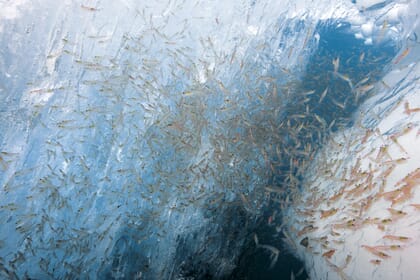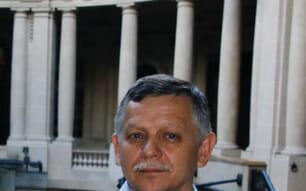
© Aker BioMarine
The Greenpeace-led retailer roundtable was held in conjunction with their Antarctic 360 event in Cambridge, attended by scientists and Oscar-winning actor Javier Bardem, who joined Greenpeace’s expedition to the Antarctic in January 2018.
Krill is a wonderful ingredient for aquaculture feeds not only for its fish health and nutrition properties but because it is a natural source of carotenoids which give salmon and shrimp their great pink colour. BioMar sources MSC certified Antarctic krill from their supplier Aker BioMarine, who initiated the commitment, which has been hailed as “unprecedented” by Frida Bengtsson of Greenpeace’s Protect the Antarctic campaign.
This major announcement from a group of the largest krill fishing companies will see nearly all krill companies operating in the Antarctic voluntarily stop fishing in huge areas around the Antarctic Peninsula, including ‘buffer zones’ around breeding colonies of penguins, to protect Antarctic wildlife. The fishing companies are all members of the Association of Responsible Krill (ARK) harvesting companies and represent 85 percent of the krill fishing industry in the Antarctic.
BioMar, having already achieved their sustainability KPI of 100 percent MSC certified krill, welcomes the scientific and political process for the creation of a network of large-scale marine protected areas in the Antarctic.
“Sourcing krill can be done at safe levels that considers the Antarctic ecosystem and marine species that rely on it as an essential nutrient in their diet. This initiative further strengthens the sustainability and precautionary practising shown by our supplier Aker BioMarine. The overwhelming support for this commitment up and down the value chain shows just what can be achieved when we collaborate together under the shared vision of a sustainable aquaculture industry,” said Vidar Gundersen, BioMar Global Sustainability Director.
Krill is a natural source of essential nutrients in the diet of many marine species from penguins and whales to salmon and shrimp. It’s important to BioMar that the world supply of krill is harvested responsibly and that the fisheries and companies supplying this essential ingredient have been certified by MSC, which is currently the strictest certification programme for marine harvesting.


